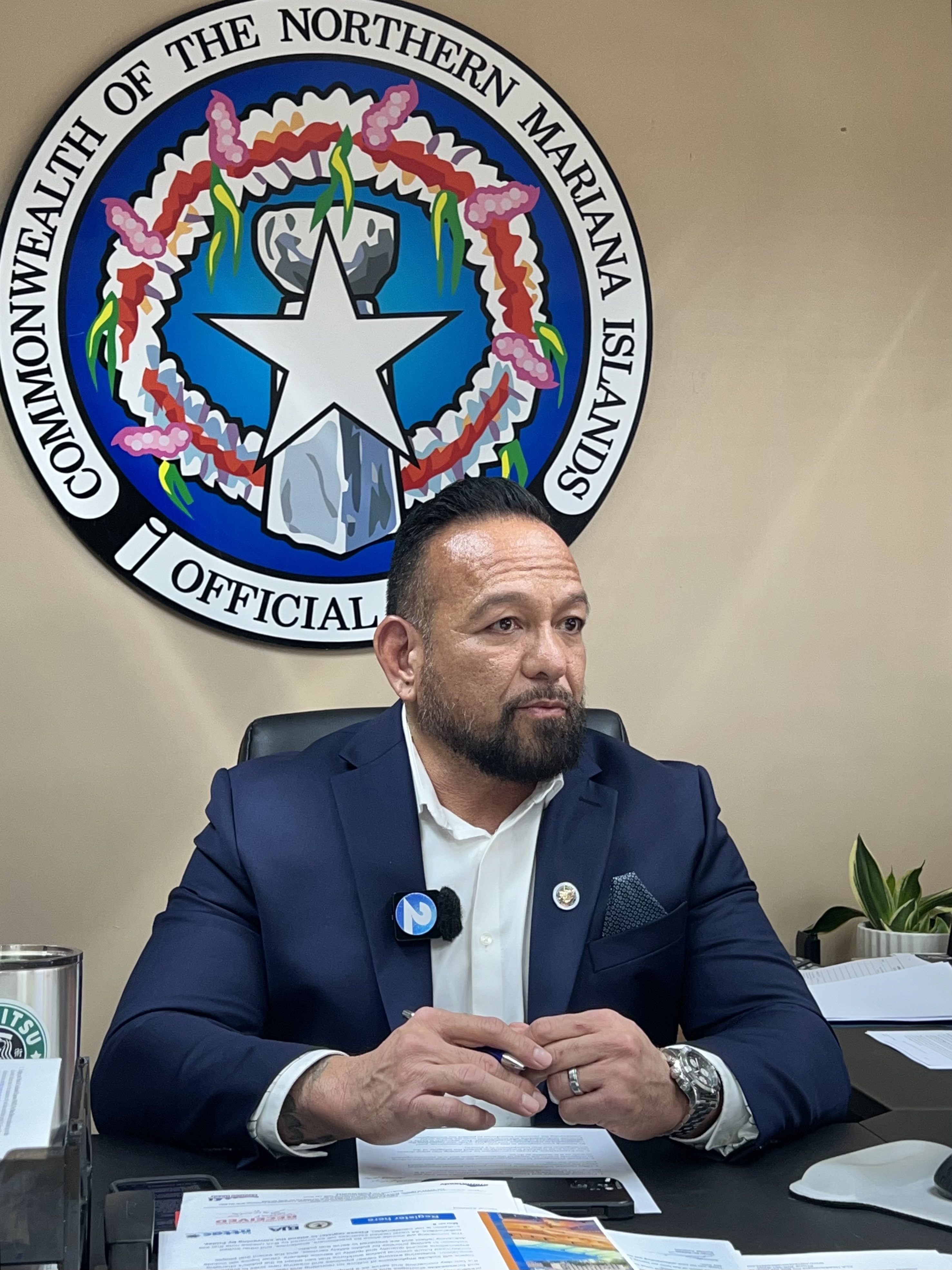Torres: Work programs vital for inmates
Department of Corrections Commissioner Anthony Torres is in full support of the House Standing Committee on Judiciary and Governmental Operations’ unanimous decision to pass House Bill 23-64, House Substitute 1 which essentially authorizes the Department of Corrections to pay inmates for their labor.
Last week, during a JGO committee meeting, Rep. Manny Gregory Tenorio Castro (Ind-Saipan) offered a floor amendment for the adoption of House Bill 23-64, HS1, a bill aimed at authorizing the DOC to pay inmates for work performed while incarcerated.
By a unanimous vote, the bill, with Castro’s proposed amendments, passed the committee and is expected to be brough before the House body next week for a vote.
The legislation would essentially give the DOC commissoner the authority and flexibility to promulgate regulations and policies to establish a system and process for paying inmates when there is adequate funding.
The commissioner would have a ceiling of $1 per hour.
An inmate would start with $.25 per hour and work up to that $1, based on their work performance and good conduct.
As an example of acquiring funding, Torres uses the Department of Public Works as an example.
“Say our Commonwealth through the Department of Public Works receives $13 million of federal funding to pave the road leading up to Mt. Tapochau. Well, our Outreach Program with five officers and 30 participants can be contracted by DPW to work a portion of the project for $4 million. A portion of that $4 million would be set aside for inmate pay and the rest to help sustain our program and pay for other expenses like staff and inmate uniforms, evidenced based programs, equipment, utilities, staff training, etc. While incarcerated, with good conduct coupled with psychology programming and acquiring job certifications in the trades industry, these participants would be set up for a successful reentry into the community with a solid job placement in DPW or in the private sector,” he said.
Torres expressed his support for this legislation stating that often many view incarceration solely through the lens of punishment, however it’s crucial to consider the profound impact work programs and the ability to earn wages can have on individuals behind bars and the community when they return home.
“Imagine, for a moment, a young father named Jose who, a few years into his prison sentence, learns the skill of welding through a work program instituted by the Northern Marianas Department of Corrections and NMTech. When he first arrived at the facility, he was filled with huge regret over his past mistakes and the time lost with his son. But as he learns to master the intricacies of welding, creating everything from structural support beams to metal sculptures, something transformative begins to happen. He starts to see a future for himself, a chance not only to support his family financially, but to break the cycle of poverty and crime that has defined his life,” he said.
Torres said while some may argue against the idea of paying inmates or supporting their work programs, it’s essential to recognize that these initiatives aren’t just about giving “handouts” or wasting taxpayer money. Rather, they are about fostering accountability, responsibility, and resilience.
“By allowing individuals like Jose to earn money, we empower them to contribute to their families and communities even from behind bars. The wages they earn can help pay for phone calls home, support their dependents, or even save for their eventual release, making the transition back to society that much smoother. Moreover, welding programs don’t just serve the individuals involved; they benefit society as a whole,” he said.
Torres explains that when inmates acquire practical skills and work experience, they are far less likely to return to prison after their release.
“Statistics show that employment greatly reduces the likelihood of recidivism. By investing in work programs today, we can lower crime rates and save taxpayer money in the long run, transforming our justice system from a cycle of re-incarceration to a system that nurtures hope and opportunity. Consider, the ripple effects on communities. When released, individuals who have participated in welding programs are equipped to reintegrate successfully, secure employment, and become active, contributing members of society. The demand for skilled welders is high, and those with welding certifications can find well-paying jobs that allow them to rebuild their lives and support their families, fostering healthier communities, which ultimately benefits everyone,” he said.
“It’s easy to focus on the negatives and the challenges of supporting change within the corrections system; however, we must also recognize the potential for redemption and growth. Instead of viewing inmates as a burden or a threat, we can perceive them as individuals who, with the right support, can turn their lives around. We all need to work together to champion initiatives that allow for rehabilitation and reintegration. Let’s advocate for legislation that funds work programs and pays inmates fairly. By doing this, we lay the groundwork for a more humane, effective corrections system that not only holds individuals accountable for their actions, but also provides them with the tools needed to build a brighter future for themselves and for all of us. Together, we can help transform lives and create a safer, more prosperous commonwealth,” Torres added.

Anthony Torres






